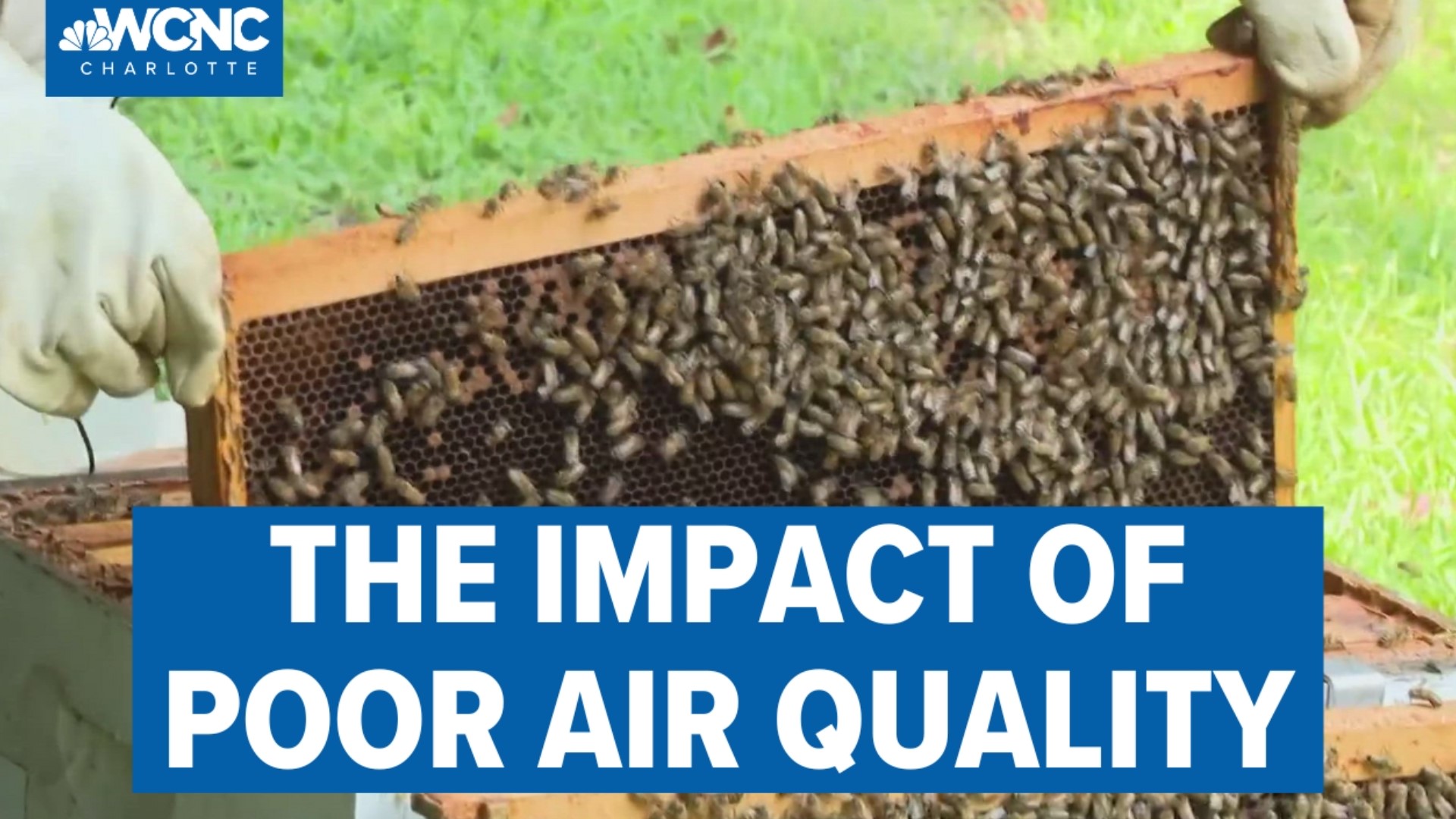MECKLENBURG COUNTY, N.C. — In Mecklenburg County, air quality specialists and scientists are responsible for monitoring and maintaining the county's air quality devices.
The equipment runs 24/7 and maintains high-quality data while following federal guidelines.
"The important thing about this air quality data is that it's high-quality data," Megan Green, Mecklenburg County Air Quality Project Manager said. "We have really good quality assurance and quality controls with the data. It's available on our website and pretty close to real-time."
The Mecklenburg County Land Use and Environmental Services Agency's Air Quality division runs the monitoring stations.
WCNC Charlotte spoke to the department's project manager Megan Green and air quality specialist Victoria O'Keeffe about why air quality monitoring is important to your health.
What is air quality?
Air quality is the measurement of pollutants present in the air.
It includes criteria pollutants designated by the EPA, such as particulate matter (PM 2.5), carbon monoxide, and nitrogen dioxide.
"When we're talking about the smoke and the fire from the Canadian wildfires that we've been seeing, we're talking about particulate matter pollution," O'Keeffe said. "And so that is tiny, fine particles in the air, PM 2.5 is so fine that it's actually smaller than a single strand of human hair."
The monitoring systems around the county measures multiple pollutants including coarse and fine particulate matter, ground-level ozone, carbon monoxide, nitrogen dioxide, and sulfur dioxide.
How is air quality measured in Mecklenburg County?
Mecklenburg County operates a network of monitoring equipment across the county. Environmental scientists maintain the equipment and collect air samples. The instruments count the number of particles in the air, providing data on pollution concentrations based on federal guidelines.
"The federal guidelines are important because it means that the data that we're collecting at our air monitoring stations can be compared with air monitoring stations across the country, and can be compared to that federal health-based standard," Green said.
The data is recorded in a data logger and made available to the public on the county's air quality tracking website.
How do air quality devices work?
Air quality devices draw air samples into the instrument for analysis.
Different instruments analyze air samples for gas pollutants or suspended particles. The instruments follow federally approved methods to ensure accurate measurements.
The county follows federal guidelines for monitoring stations' placement to collect representative data.
"Where are people located, we're making sure that they're far enough away from things that could impact an air quality measurement," Green said. "Like a building or a drip line of a tree. So you're not getting interference from other things that could either cause a reading to be artificially low, or artificially high."
Who monitors the air quality devices?
Mecklenburg County air quality specialists and scientists monitor the devices.
They ensure the equipment operates 24/7 and maintain high-quality data.
"We have scientists who are operating a network of monitoring equipment across the county," Green said. "And actually there's monitoring equipment that is operated across the region and across the state of North Carolina."
Why is it important to know the air quality?
Air quality data helps people make informed decisions about outdoor activities.
"Children, active adults, those with pre-existing cardiac or respiratory conditions like asthma, and also older adults, they are particularly sensitive to air pollution," O'Keeffe said. "And so they're going to want to be able to see the data that we're collecting on our website."
By checking the air quality index (AQI), people can understand the current air quality conditions. The AQI uses a color-coded system to indicate air quality levels, allowing people to take appropriate precautions or limit outdoor activities on days with poor air quality.
Contact Shamarria Morrison at smorrison@wcnc.com and follow her on Facebook, Twitter and Instagram.
WCNC Charlotte’s Weather IQ YouTube channel gives detailed explainers from the WCNC Charlotte meteorologists to help you learn and understand weather, climate and science. Watch previous stories where you can raise your Weather IQ in the YouTube playlist below and subscribe to get updated when new videos are uploaded.



